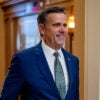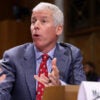The eleven year old euro zone, the world’s second largest economy after the U.S., confronts a cold reality: its members lost economic vitality over the euro’s first decade, as shown in this WSJ chart. The WSJ reports:
[The] appetite for structural overhaul is low among Europeans, who have long believed that capitalism should be tempered by generous state benefits and strong labor protections. Even in the best of times, Europeans are loath to move toward a U.S.-style economic model, which they criticize for leaving citizens to sink or swim. In bad times, voters tend to demand economic security over change. French conservatives’ stinging defeat in regional elections over the weekend was a warning that many people voters have soured on President Nicolas Sarkozy’s bid to make France more business friendly and reduce some welfare benefits.
Whether in the euro zone or in the U.S., policy choices made now will shape the growth trajectory for years to come. Policy makers need to remind their publics of the key role economic freedom plays in enhancing competitiveness and prosperity. It is economic freedom that empowers ordinary people, compensates hard work, and sparks innovative solutions from entrepreneurs. In fact, economic success in today’s global economy has proven to be next to impossible to sustain without a consistent policy environment that favors innovation and entrepreneurship. As shown in the 2010 Index of Economic Freedom, volumes of empirical research confirm a strong link between greater economic freedom and higher innovative capacity.
Government welfare may seem to promise security. What it delivers is economic stagnation. Now is the time to restore the path of economic dynamism that can only come from economic freedom.






























